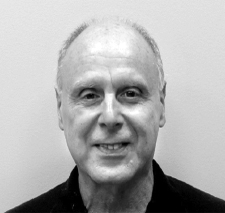
Harry Elger
BY HARRY ELGER
When the Hubble telescope was positioned outside the distortion of Earth’s atmosphere, an extrapolated estimate of 2 trillion galaxies became visible. The universe is 13.82 billion years old. Earth is only 4.52 billion years old. Humans are less than 200,000 years old.
Astrophysicists Lawrence Krauss and Brian Green frequently point out how insignificant our galaxy, planet and species are. Emergent scientific findings increasingly point toward the high statistical likelihood of advanced life throughout the universe. Instead of being chosen people at the top of evolutionary development in the universe, humans are more likely near the bottom.
Before humans understood germs, bacteria, viruses and microbiology, diseases were attributed to the wrath of the spirit world, demons, witches, Satan, Gods or superstitious beliefs. In the absence of factual knowledge, humans attributed what wasn’t understood scientifically to supernatural rather than natural sources.
Religions of many cultures indoctrinated followers with superstitious fabrications about unprovable supernatural claims. Bishop John Spong, prolific author and earnest Biblical scholar, is among those who frequently challenge religious assumptions. “The Bible is historically unreliable and factually inaccurate,” he writes.
Besides superstition and supernatural beliefs, according to Richard Dawkins, evolutionary biology researcher, the occipital area of the brain’s survival instincts over-estimate dangers and exaggerate fears. When the occipital brain is over-used and rationality is under-used, people often share irrational beliefs reinforced by religious dogma and supernatural speculations about the unknown. Without rational evaluation, religious dogmas and political deceptions seem credible when repeated in faith-based minds.
In Jonathan Haidt’s book, “The Righteous Mind,” he contrasted liberal and conservative characteristics. Liberals emphasized diversity, curiosity, complexity, universality, fairness and equality in the (rational) frontal cortex but were less sensitive to threatening situations and lacked decisiveness. Conservatives emphasized loyalty, sanctity, liberty, authority, order and tradition from the (impulsive) occipital brain’s survival instincts and preoccupation with safety and conformity. Fairness and equality weren’t important to conservatives who labeled immigrants and poor people as takers rather than makers. Takers, characterized as slackers, were actually hard working people deprived of the social policy advantages reserved for the wealthy. Makers took advantage of grossly underpaid immigrants and the poor. Conservatives predominantly supported the greedy rather than the needy. Trickle down economics evaporated upward, instead of dripping downward. While preaching the infinite availability of limited resources, do prosperity gospels endorse magical-thinking and self-indulgence at the expense of poor people?
Do irrational fears justify greed-driven capitalism? Does obscene wealth justify environmental negligence, climate denial, mass extinctions, under-qualified oligarch leaders, slashed wages, jobs, benefits and social programs? Survival of the ‘fittest’ may be the law of the jungle, but is it consistent with civilized, social benevolence, compassion, love and environmental responsibility?
Are mean-spirited versions of capitalism compatible with my former conservative Christian values? Jesus was relentlessly concerned about uplifting the poor. Are conservatives more concerned with uplifting the poor or excluding them from social policies that pander to the rich?
In Chris Mooney’s book, “The Republican Brain,” the American Psychological Association compiled studies on political conservatism from 12 countries involving 23,000 individuals. Conservatives were consistently higher in dogmatism, irrationality, intolerance and impulsivity. Conservatives criticized these findings, lobbied to stop research funding and criticized science itself with extremely reliable data misrepresented as unreliable. Was this the historic moment when conservatives became anti-scientific and fact-resistant? TV’s Dr. Phil frequently reminds us, “You can’t correct a problem you won’t acknowledge.”

Recent Comments